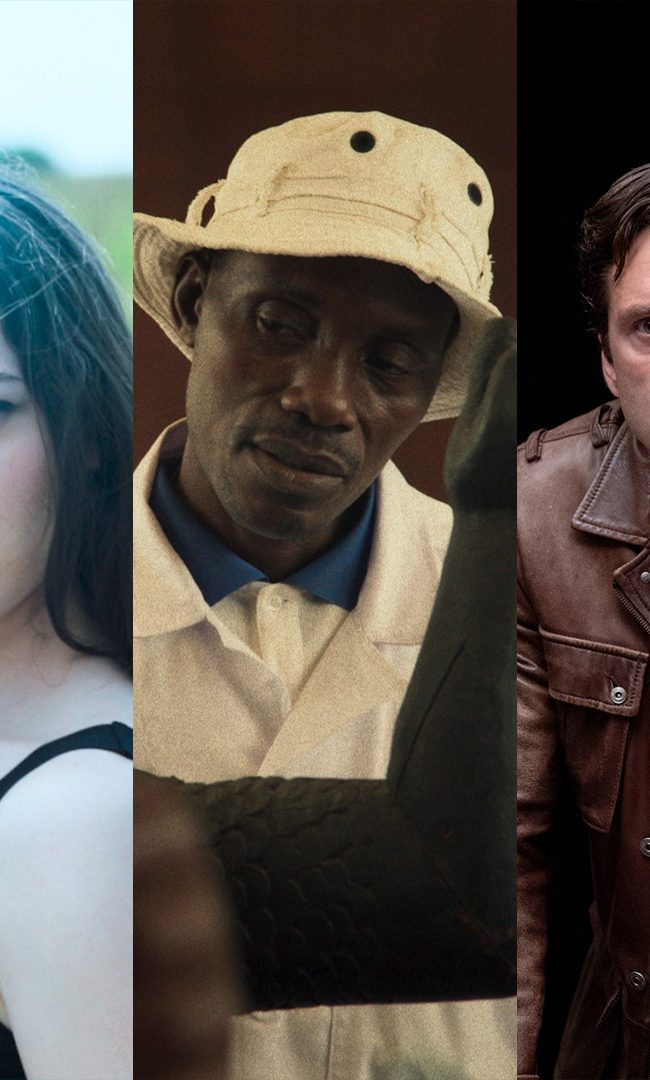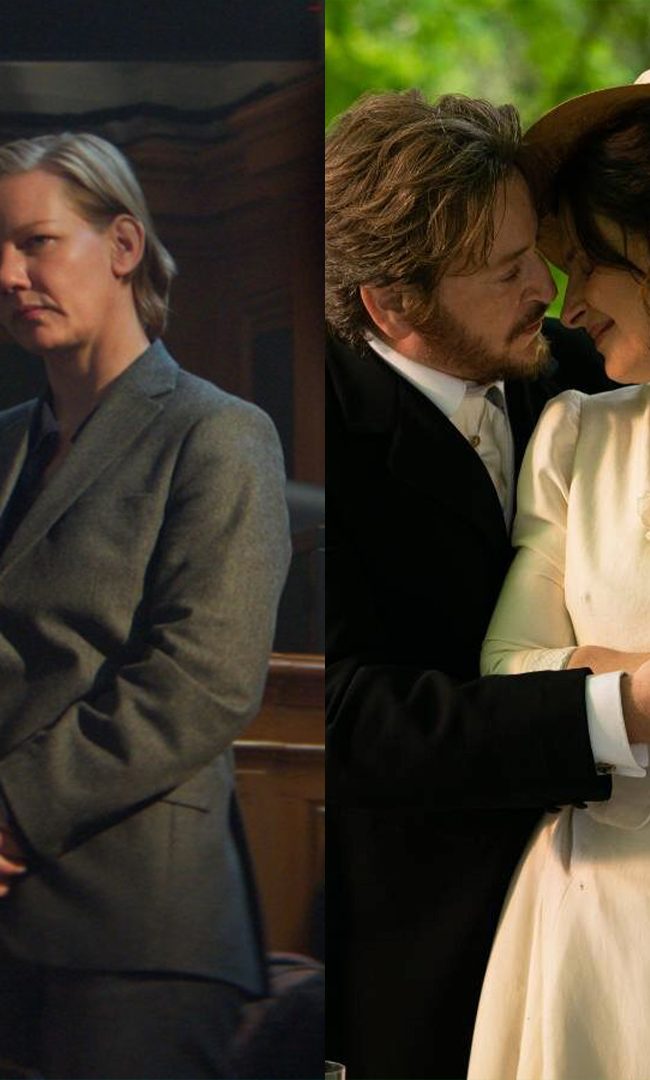A Conversation with Albert Serra (PACIFICTION)
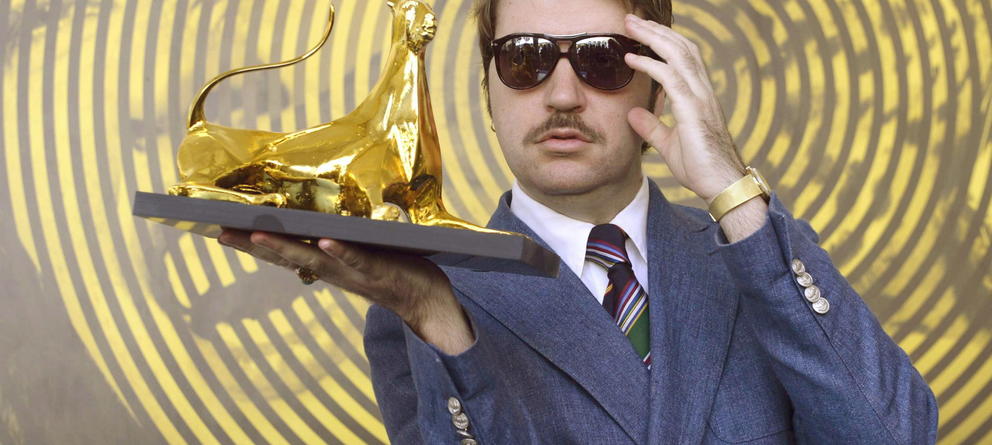
Albert Serra, from Catalan, is one of modern cinema’s most visionary filmmakers. He has been a staple at Cannes with his last three films, The Death of Louis XIV, Liberte and now Pacifiction which debuted in the main competition at Cannes in 2022. The film has finally seen a wide release and it would be a mistake not to see it in a theater. This film, truly unlike anything else in the current cinematic landscape, stars Benoit Magimel in an incredible role as De Roller, the French politician. The film follows De Roller as he hangs out with locals and investigates a military group staying on the island. It looks gorgeous, and it is all thanks to Mr. Serra’s insane process which he details below. Prior to seeing Pacifiction I thought Nicolas Winding Refn and Ruben Östlund were the kings of digital cinematography, however, with Pacifiction Serra has shown why sometimes Digital is better. The following interview is edited for length and clarity.
Hammer To Nail: What was the writing process on this film like? On IMDBPro Baptiste Pinteaux is credited for “Dialogue” and you are credited for “Screenplay.” Have you had this process for a while now?
Albert Serra: Well, first of all, I wrote the normal script, I do the finance myself, as always. Usually, when I write, I like to have a concrete actor in mind. We had the idea with Magimel and I had a good conversation with him so I went ahead and wrote the whole script with him in mind and it was not based on anything personal. The script did not have any dialogue, however, it was extremely long and detailed. There was in every scene the thinking of the characters like in a novel. Like a normal script, it was very useful in telling us what the set up was, how the characters were thinking, what they were there to do, etc. In every thought of a character there is something you can communicate and something you cannot.
For example, lets say I am in a bar and I think, “I want to fuck this guy,” or “I want to fuck this girl,” I can’t just say that to them, however, you then think, “maybe if I invite them to dinner I will have more of a chance.” This interests me, the idea of things you can and cannot communicate. All the parts you can communicate are easy to come up with. It is all very natural, transforming it into dialogues, when you know exactly how every character is thinking. While shooting, Baptiste was using an earpiece and we would feed him the dialogues and he would then communicate it to the actors because his accent was better than mine.
Bapiste wound up doing a lot of improvisational work because Magimel was always at least 1-2 hours late every day. In those hours we had time to brainstorm and come up with something concrete. It’s quite easy and it is a magma of possibilities. We had a pdf of potential dialogues, it wound up being 1,300 pages long. Most of it was monologues for magimel. It was a lot of content, there was really a lot to say. In the edit, with all of these possibilities, I can really pick what is the best for the scene. I can make it a little more dramatic, a little more funny, a little more politically incorrect, a little more absurd, I can do anything. I know the feelings of the characters and I am the editor of the film, so it is quite easy. I don’t like to do anything concrete. The takes, on my set, are very long, they can be 20-30 minutes, so you need people that are up for the job.
HTN: Well, it certainly worked out. Speaking of Benoit Magimel, he gives one of my favorite performances of all time as the endlessly fascinating De Roller. You already explained that you wrote it with him in mind, so how did you guys meet and what was it like working with him on set?
AS: On Set he was very interesting because he was very competitive especially on the first take. He did not know anything. He had not read the script. He always entered a scene not knowing what would happen or how long it would take. Some takes would last one hour. They were always at least 10-20 minutes long. He was very competitive in the first take in trying to understand everything. He was extremely concentrated.
On the second take, while I never do anything the same twice, the general setup is similar. The same decor, people, general situation etc. Since he has done the first take, he now understands who the people are, what they are looking for and around how long it will take. In those second takes he would be a little bit more lazy with his concentration. He would go on automatic pilot. The subtleties that my three camera set ups pick up on reveal when things feel predictable.
There was a lot of variability on the set for Benoit, sometimes I gave him concrete dialogues, sometimes not, sometimes only one sentence, sometimes he would share the screen with people who knew what to do, sometimes they did not, every scene was different. He never complained. He is a rock and roll person. He was open to everything and I appreciated that because it was not a given that a professional actor like Benoit would be able to handle all of these variabilities. Sometimes on a creative level it can be embarrassing and create tense moments. It is not evident that it will always be interesting, but he accepted that and never cut a scene. He was very brave and went until I said it was time to stop.
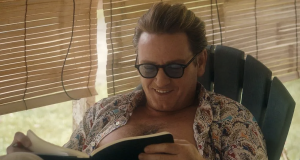
Benoit Magimel in PACIFICATION
HTN: He is absolutely magnetic in the film.
AS: Yes! It is hypnotic because of this idea of not knowing. He never read the script. He had a general idea of his character, you know, who he is, what he is doing, but he is creating everything in real time. It is really about not reducing the complexity of the perception of life. This can be seen in conventional cinema. It is reduced in order to deliver a message that everyone can understand. When things are simplified the emphasis is on the drama, the action and the narrative. I am interested in everything else. I am not intrigued by drama, action nor the narrative.
HTN: He is truly one of the coolest on screen characters in the history of cinema as far as I am concerned.
AS: When editing the film, I saw two or three moments that I still do not understand how he did it. I don’t get how he can be so unrealistic yet so organic at the same time. He has such a cold precision when doing things that are completely inorganic, out of his control and totally wild.
HTN: Shooting on digital definitely leads the way for this type of performance.
AS: Of course.
HTN: You have been utilizing digital cameras for quite some time now, so what is it about digital that you prefer? I know that you champion digital.
AS: Well, first of all, you get to do long takes. The focus is easy, so I do not need so many people. Only one operator for each camera. There are no assistants. Zero assistants on set. This means that each of these operators and the cinematographer, they take care of the cameras and tripods from day to night. This allows for the set to be very intimate. It is easy to make the character feel comfortable but also there is a cold precision about how we make the actor lose control. With normal cameras this is impossible. Even the big digital cameras. I have found a sensuality in the editing of this digital footage.
One thing I almost never do is move the camera. It is these fixed positions and fixed plans that create this precision and sensuality. This is only possible with the small digital cameras. The Digital edit is something quite new. You have all the material on one computer. For me, cinema is not that you have an idea and then you simply print the idea. You do not know how it will work. You deal with human beings, actors and it is very difficult. Cinema is like graphic design. Let’s say we have to design a poster. We are trying to figure out what looks better blue or red. The only way to find out is to print both. Then you compare it and you decide it is more beautiful in blue. You have to see it, compare it and decide. I need to have multiple options to decide what creates the best tone. I cannot just have one idea in my pocket. To me, there is no relation between the script and what you shoot. So the digital edit and the cameras, the possibilities they allow, it is something complimentary but also very important.
HTN: I would like to talk about one of my favorite sequences in the film which is the one in the waves. Talk about the anatomy of that sequence. I have no idea how you pulled that off.
AS: Well, it was by chance. We rented the boats for that day 4 weeks before. We had realized 10 days in advance that there would be huge waves as they had not seen in the last 3 or 4 years. We were lucky twice because then there was supposed to be the world championship of surfing that day, but the government called for a total lockdown, so the tournament was canceled. There were some people at the beach trying to go into the water and the police were there preventing them. The waves were so big these people wanted to practice for professional surfing. We were able to shoot because we had a permit.
The championship was canceled and there were 10 times less boats, which allowed us to shoot a more realistic scene in an environment we were in control of. We went in the perfect size for shooting the scene. It was great to interact with what we could control and what we could not like the waves and how Magimel would act amongst the conditions. Luck favors the brave. We were ready, we were there, we wanted the boats. We lost one memory card because everything was so chaotic and one camera man tossed the card with the footage on it thinking it was an empty one. So in this case we shot with 3 cameras at this moment but, we could only use 2.
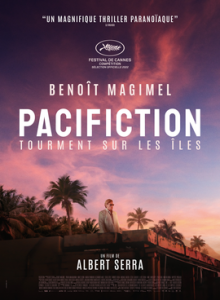
PACIFICATION poster
The question here for me was how much presence should Magimel have? I gave him a lot of instructions and in the edit we were able to find a good equilibrium. If you go on youtube you will find waves 3 times as big. So why does this sequence work so well in the film? Because you care about Magimel. Who cares about the fucking surfers. It is not sports, it is a film.
HTN: It was truly one of my favorite sequences I have seen in a theater.
AS: It works well in this film, with this character.
HTN: Benoit on that jet ski…Amazing.
AS: With another character, another film, maybe it would just be another scene.
HTN: I think the idea of a discotheque/submarine/prostitution ring is incredible. How the hell did that come to you?
AS: I don’t know, I wanted to be a little bit politically incorrect. I like to always be on the edge, but not go too far. I always associate the idea of military men with Prostitution. I do not know why, maybe it is a perversion for me. It is something that is linked with colonialism. The idea of these military men who use women and use the territory to make a nuclear test. The idea of using people and using places. I don’t know. It is quite a strange thing. I got into reading a lot about World War 2 and how brave everyone was and the grit they showed. Today, that is so far from us with everyone being so bourgeois and so hedonist.
These moments where extreme sacrifice was necessary always impressed me. I liked this idea because it was ridiculous but also scary. Magimel looking with the torch in the ocean in the middle of the night and thinking just because these girls go on that shitty boat that there is a submarine where they are doing nuclear tests and this is the proof? It is ridiculous. The military being in the shitty discotheque taking drugs and being with young people or dancing with the black guys. They all have this cynical smile. They do not care about cancer and they are all drunk. They are all saying crazy things. Everything is on the edge of paranoia, reality, grotesque, humor and also visionary and also realistic. The most important part for me is the direction of the actors. There is something so organic, yet ironic about acting. All the actors in the film are so out of any kind of cliche. It is very pure in that sense. It is a strange film and it works. I was lucky.
HTN: Thank you so much for speaking to me today. This film is really one of my favorites and I look forward to returning to Tahiti with Benoit Magimel soon.
AS: It was my pleasure to talk to you because there is always nice dialogue with people that really love the film and understand the good points of the film.
– Jack Schenker (@YUNGOCUPOTIS)
Les Films du Losange; Albert Serra; Pacification movie review








